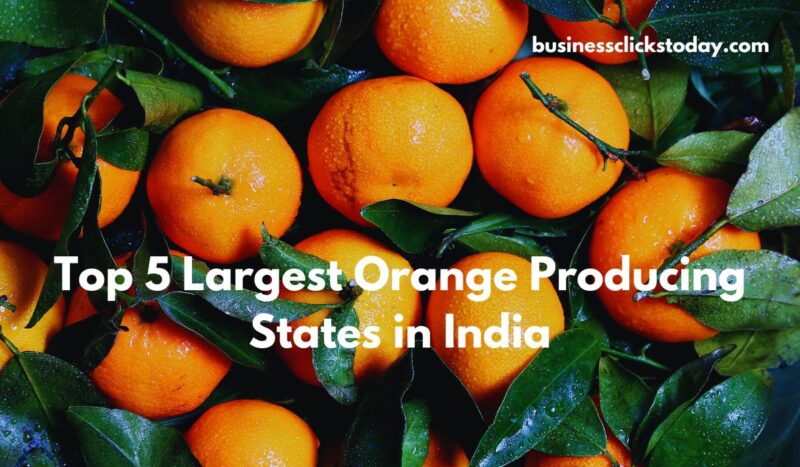Oranges are undeniably one of the most cherished fruits among millions of Indians. But have you ever wondered where the oranges you crave most are actually grown? India boasts several states that focus heavily on orange cultivation, ensuring that we don’t rely solely on imports. If you’re intrigued and eager to learn more, let’s delve into the top 5 largest orange producing states in India as of 2024.
Top 5 Largest Orange Producing States In India 2024
1. Maharashtra (692,000 tonnes)
Maharashtra stands out as the leading producer of oranges in India, particularly in the Nagpur region. The distinctive oranges from Nagpur are renowned worldwide for their unique taste. These Nagpur Oranges are celebrated for their sweetness and juiciness, though their skin can be a bit rough. Recognized for their quality, they were granted special status in April 2014 to protect their integrity and encourage local farming. Nagpur experiences two primary harvesting seasons: the Ambiya season from September to December, known for its slightly tangy flavor, and the Mrig season in January, which yields sweeter oranges. Maharashtra’s contribution totals a substantial 692,000 tonnes of oranges annually.
2. Madhya Pradesh (237,000 tonnes)
Madhya Pradesh is another significant player in India’s orange production, with a notable output of 237,000 tonnes. The Chhindwara district is particularly prominent for its orange cultivation. The oranges from this region are branded as Satpuda oranges, differentiating them from Nagpur varieties and promoting local produce. Chhindwara oranges are known for their thin skin and sweeter taste, making them highly sought after by large companies. The district’s extensive orange farms, covering 25,000 hectares, are vital for the local economy and help export oranges to neighboring regions, including Bangladesh.
3. Assam (83,000 tonnes)
Assam ranks third in orange production, with an annual output of 83,000 tonnes. The state’s unique wet climate results in oranges that are both sweet and slightly sour, contrasting with the taste of oranges from central India. Assam plays a crucial role in meeting local demand and supports numerous small-scale farmers, contributing significantly to the nation’s orange market.
4. Rajasthan (48,000 tonnes)
Despite its arid and dry conditions, Rajasthan produces 48,000 tonnes of oranges. Farmers in this region have adapted their cultivation techniques to suit the harsh, dry soil, requiring minimal water. These oranges have tough skins, making them ideal for long-distance shipping. Rajasthan’s ability to produce oranges in such a challenging environment underscores the resilience of its farming community and helps sustain agriculture in this dry area.
5. Meghalaya (37,000 tonnes)
Meghalaya contributes 37,000 tonnes of oranges annually, benefiting from its hilly and cool climate. The high altitudes and cool temperatures in Meghalaya impart a distinct flavor to its oranges, adding diversity to India’s orange production. The unique conditions in Meghalaya help produce a variety of oranges that stand out in the market.
Conclusion
In summary, the largest orange producing states in India play a crucial role in satisfying the nation’s demand for this beloved fruit. Maharashtra, Madhya Pradesh, Assam, Rajasthan, and Meghalaya each contribute significantly to the orange industry, with their unique climatic conditions and cultivation techniques shaping the quality and variety of oranges produced. Understanding these top orange-producing regions highlights the diverse agricultural landscape of India and the country’s ability to meet its own orange needs effectively.
















